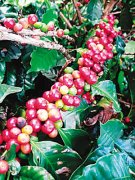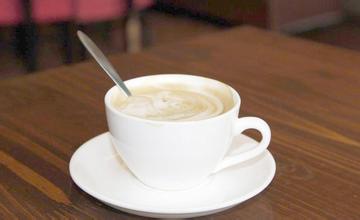Introduction to the characteristics of Coffee Manor in Ethiopia
Characteristics of Ethiopian Coffee Market
The coffee market regulatory body in Ethiopia is the Ethiopian Coffee and Tea products Administration. There are two auction centers in the country, one in the capital Addis Ababa (Addis Ababa) and the other in Dire Dawa in eastern Ethiopia. Coffee growers wash fresh fruits or take them to private coffee processing plants or cooperative coffee washing stations. Washed and dried coffee beans are transported to a central store in Addis Ababa, the capital, where they are fully inspected and soaked, rated according to poor quality and auctioned. Coffee from state-owned farms has to follow the same procedure after being processed by the farm. Buyers who participate in the auction will carefully observe the coffee beans and their soaking proof before bidding. The bidding takes the form of the buyer shouting out the price.
Export of Ethiopian coffee
Ethiopia exports 80% of its natural or sun-cured coffee beans and 15% of its wet-processed coffee beans every year. Ethiopia has about 2.5% of the global coffee market. Ethiopia's coffee is exported to all parts of the world, and Germany, Japan, Saudi Arabia and the United States are Ethiopia's four major coffee exporters. On average, Ethiopia exports about 109000 tons of coffee (equivalent to 1.8 million bags of 60 kg coffee) to all parts of the world each year.
Transportation of high quality coffee beans
Coffee is an important industry in Ethiopia. Ethiopia is not only a symbol of coffee, but also relies on coffee exports to achieve prosperous economic development. Not only that, the whole of Ethiopia also loves drinking coffee very much.

Important Notice :
前街咖啡 FrontStreet Coffee has moved to new addredd:
FrontStreet Coffee Address: 315,Donghua East Road,GuangZhou
Tel:020 38364473
- Prev

Indonesia Yakintamani Volcano Ubu processing Plant Bali Karana Sun Coffee
This year, Rodney successfully experimented with three different batches, including water washing, honey treatment, sun treatment, and three different construction methods. The flavor greatly exceeds the general batches of origin, and the overall defect rate and uniformity are even better than those of fine beans in Central America. Water washing and honey treatment have bright and complex acidity, and the sun treatment batches are much better than those of Panama Manor.
- Next

Kenya coffee brewing method and practice introduction
A serving of coffee powder is about 10 to 12 grams and boiling water is 120 cc. For those who like light coffee, the amount of powder can be brewed by about eight grams per person. People who like strong bitter taste can be 12 grams per person, fully steamed and then slowly injected with boiling water. It's easier to fill a kettle with hot water for about seven or eight minutes, but it's easier to open it for one person.
Related
- Does Rose Summer choose Blue, Green or Red? Detailed explanation of Rose Summer Coffee plots and Classification in Panamanian Jade Manor
- What is the difference between the origin, producing area, processing plant, cooperative and manor of coffee beans?
- How fine does the espresso powder fit? how to grind the espresso?
- Sca coffee roasting degree color card coffee roasting degree 8 roasting color values what do you mean?
- The practice of lattes: how to make lattes at home
- Introduction to Indonesian Fine Coffee beans-- Java Coffee producing area of Indonesian Arabica Coffee
- How much will the flavor of light and medium roasted rose summer be expressed? What baking level is rose summer suitable for?
- Introduction to the characteristics of washing, sun-drying or wet-planing coffee commonly used in Mantenin, Indonesia
- Price characteristics of Arabica Coffee Bean Starbucks introduction to Manning Coffee Bean Taste producing area Variety Manor
- What is the authentic Yega flavor? What are the flavor characteristics of the really excellent Yejasuffi coffee beans?

